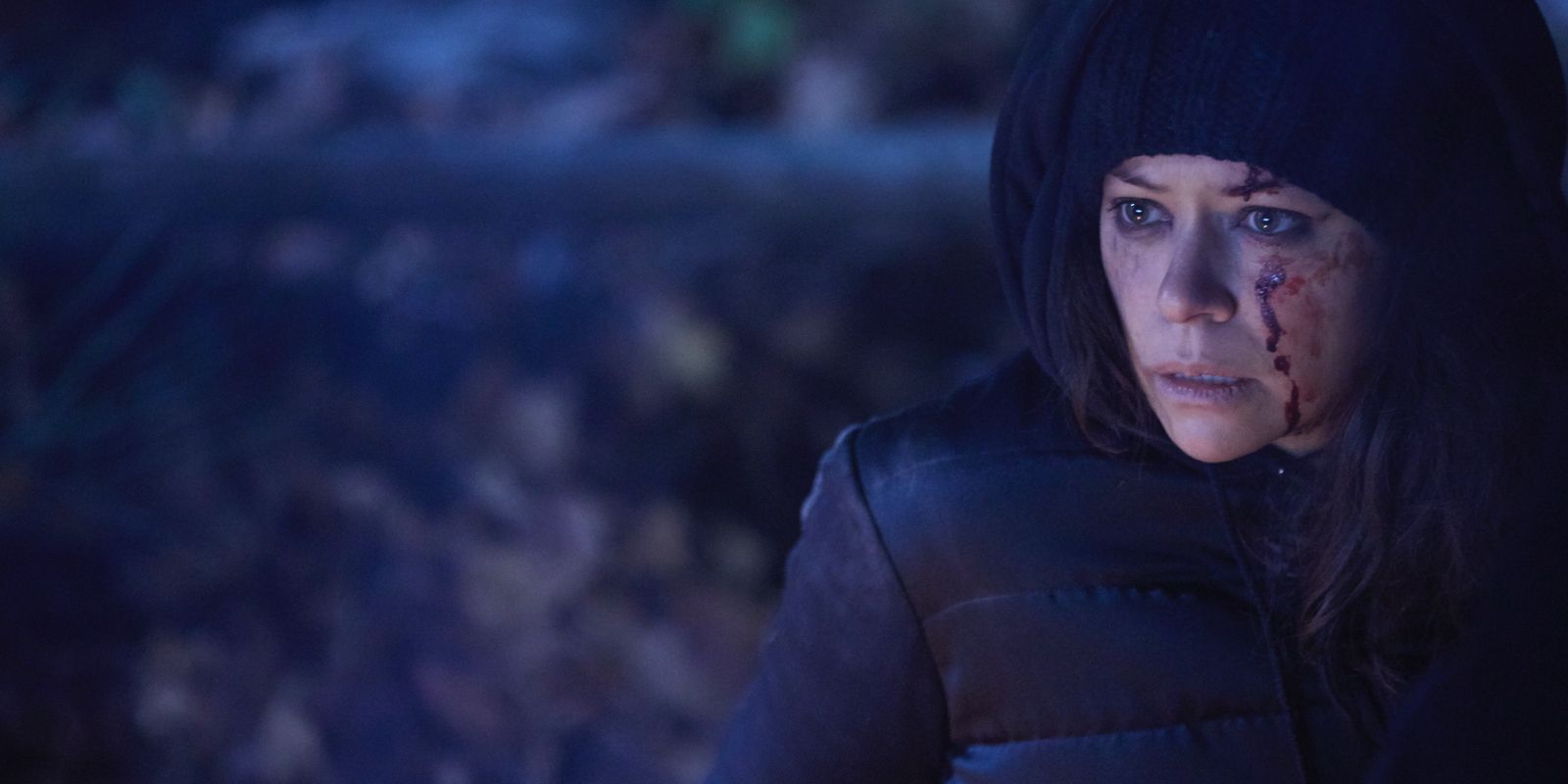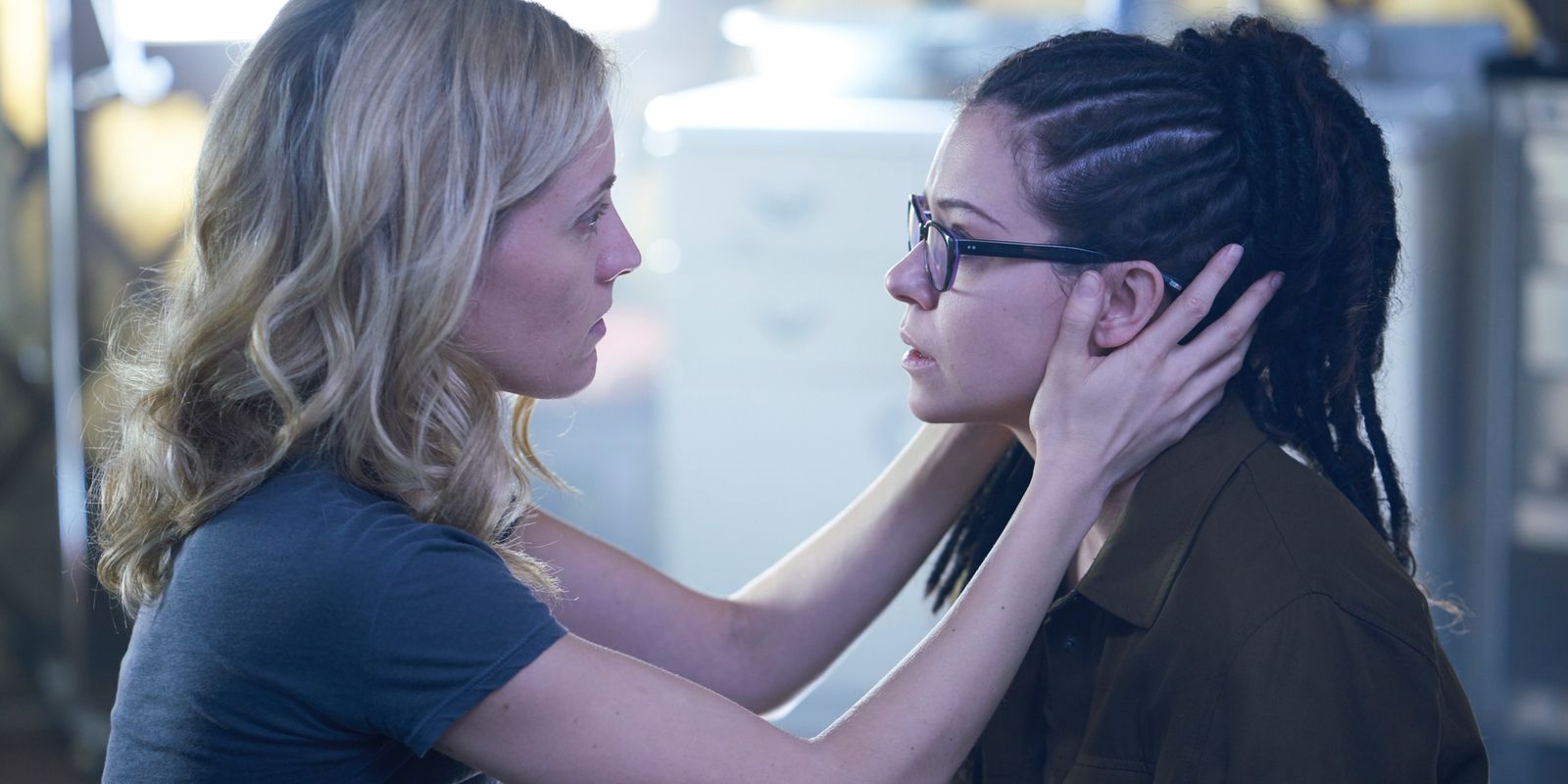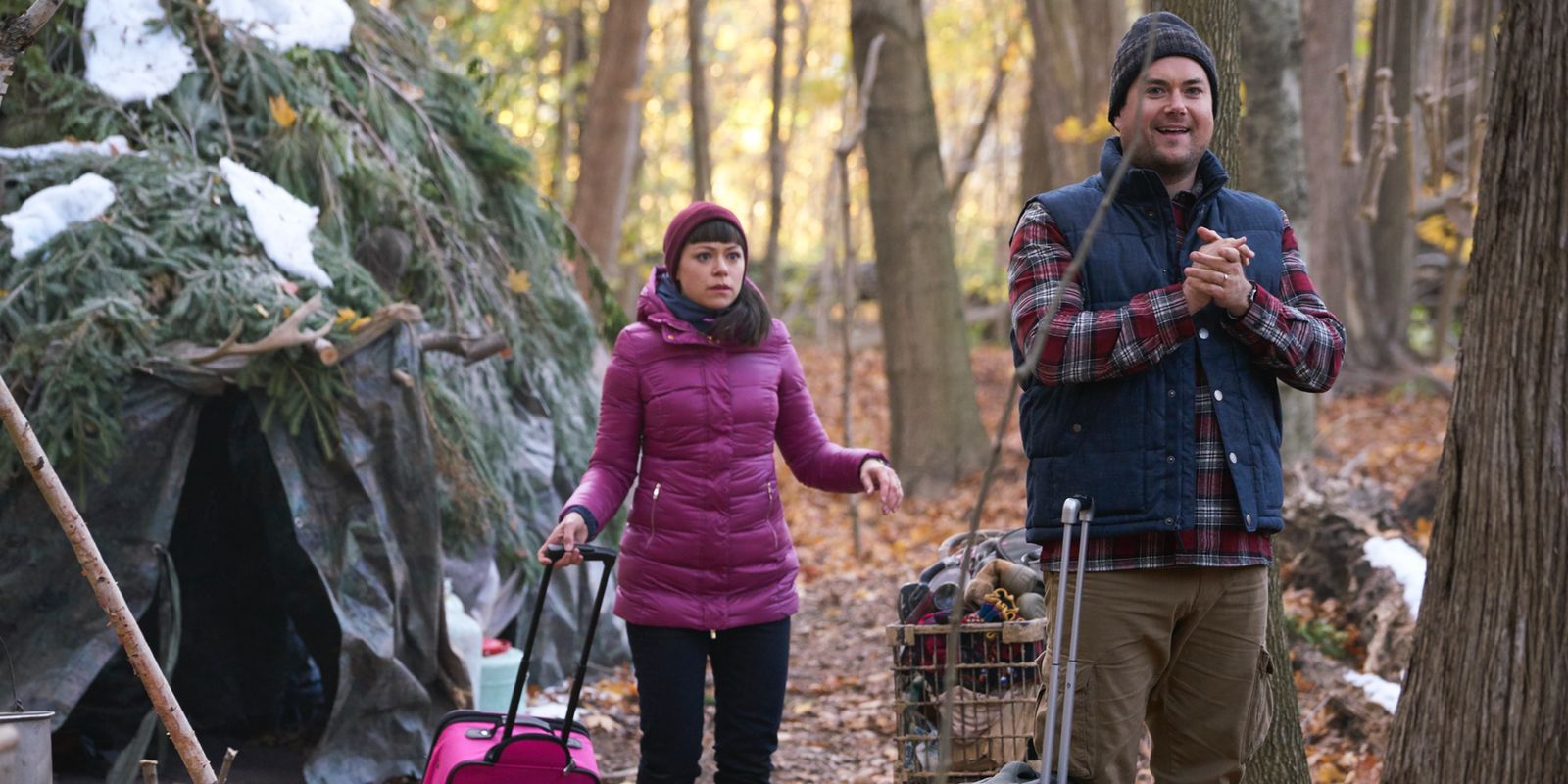At the start of its final season, Orphan Black sets up an exciting endgame that promises great performances and answers to one of TV's most original stories.
Setting up the final season of a television series is the sort of job that likely fills showrunners with an equal amount of hope and dread. It seems a particularly troublesome endeavor when dealing with genre material too, especially one that has relied as much on mystery and conspiracy as Orphan Black has over the course of its soon-to-be five season run. While mystery and conspiracy so often become a fascinating and attractive cornerstone for many stories, the unanswered questions swirling about them also tend to elevate expectations to (perhaps) an unfair degree. It's a conundrum wherein the anticipated resolution tends to tower above the reality of what the show can or will deliver.
Still, meeting or even exceeding expectations isn't unheard of. It happened recently, in fact, with The Leftovers, as Damon Lindelof and Tom Perrotta delivered one of the best finales in TV history with their mystery-laden meditation on faith and grief. That series took its unofficial credo of "let the mystery be" seriously, and went a more emotional route with its finale. Such a direction worked with The Leftovers because that series wasn't about solving a mystery; rather it was about living with one.
Orphan Black doesn't have that luxury – at least not to the same extent. While the series has been built as much on the mind-bogglingly incredible range of performances from it star Tatiana Maslany, the series is much more beholden to more typical constructs of genre storytelling. In other words, there's an end in sight, and after four seasons of questions concerning Sarah Manning and her sestras, and the increasingly expansive and bizarre conspiracy surrounding their creation, the expectation is that this story about a group of clones will find the kind of conclusion that fulfills both the emotional threads that have been developed since the series began, and deliver the kind of conclusion that explains just what the hell has been going on.
For its part, the season 5 premiere 'The Few Who Dare' makes good on the unwritten promise to deliver answers, not only to the question of the clones, where they came from and why, but also to deliver something that goes beyond the plot and digs deeper into the unique, individual (yet genetically identical) characters that Maslany has created over the last few years. It also digs into the audience's understanding of why, after all this time, we're still emotionally invested in Sarah, Cosima, Alison, M.K., Helena, and Rachel – not to mention supporting characters like Felix, Donnie, Art, and after some time away, Delphine.
Much of that has to do with the aforementioned mystery of their existence. It's something that Orphan Black has teased successfully and not so successfully over the years. The latter part happening primarily in season 2 when the show's surprise success likely put the brakes on too much plot progression, so that the series could extend its life – which, ironically, appears to be a big part of the equation when it comes to what, exactly, has been going on with Sarah and her sestras this whole time.
Now that Rachel has ascended to the top of the Neolution chain of command, and Sarah and Cosima are stuck on the island housing the group's followers and fellow test subjects, it seems as though the story of Orphan Black is more than ready to make good on wrapping things up once and for all. That makes for a remarkably fast-paced season premiere; one that pushes one particular plot thread through with satisfying results.
Cosima's illness has been a major thread from the very beginning, and it seems as though the series is willing to address it long before the final episode. There's still plenty of reason to doubt that the treatment Cosima receives will be as "blue sky" as her being reunited with Delphine, but structurally speaking, it suggests the show's writers have begun making sure their checklist for the series finale is being managed properly. That also means an expansion of the Neolutionist collective and what Rachel's newfound role means for the group's future.
As potentially thrilling and revealing as all that is, the draw of Orphan Black continues to be Maslany and the astonishing, Emmy-winning performance(s) she's put on. It's season 5 and although you know Maslany is portraying each and every clone, it still feels a bit surprising that your brain has to remind you of this fact. Maslany's performances are so unique, and the variations between the characters – both subtle and extreme – are so precise that understanding these characters are all derived from the same woman provides as big a shock and as welcome a realization as it did when the series first premiered.
That feeling is best demonstrated in the premiere, as the hour shifts its attention to Alison, Helena, and Donnie. While Cosima affords the hour its emotional payoff, and Sarah helps add intrigue, the unlikely trio of a two tightly wound suburbanites and a Ukrainian killing machine affords the series a sense of levity without diminishing the urgency the plot requires. If you needed to sum up an emotional response to the series, you'd be hard-pressed to do better than the look of sheer joy on Donnie's face when Helena responds to his loon call while out trapping in the woods. The moment encapsulates the delightful absurdity of Orphan Black with the pleasures of watching Maslany and the supporting cast immerse themselves so fully into their roles and the bizarre storyline that's made this show such a treat to begin with. At the start of its final season, Orphan Black sets up an exciting endgame that promises great performances and answers to one of TV's most original stories.
Next: Orphan Black Final Season Clip: Helena Meets a New Clone
Orphan Black continues next Saturday with 'Clutch of Greed' @10pm on BBC America.
Photos: BBC America



